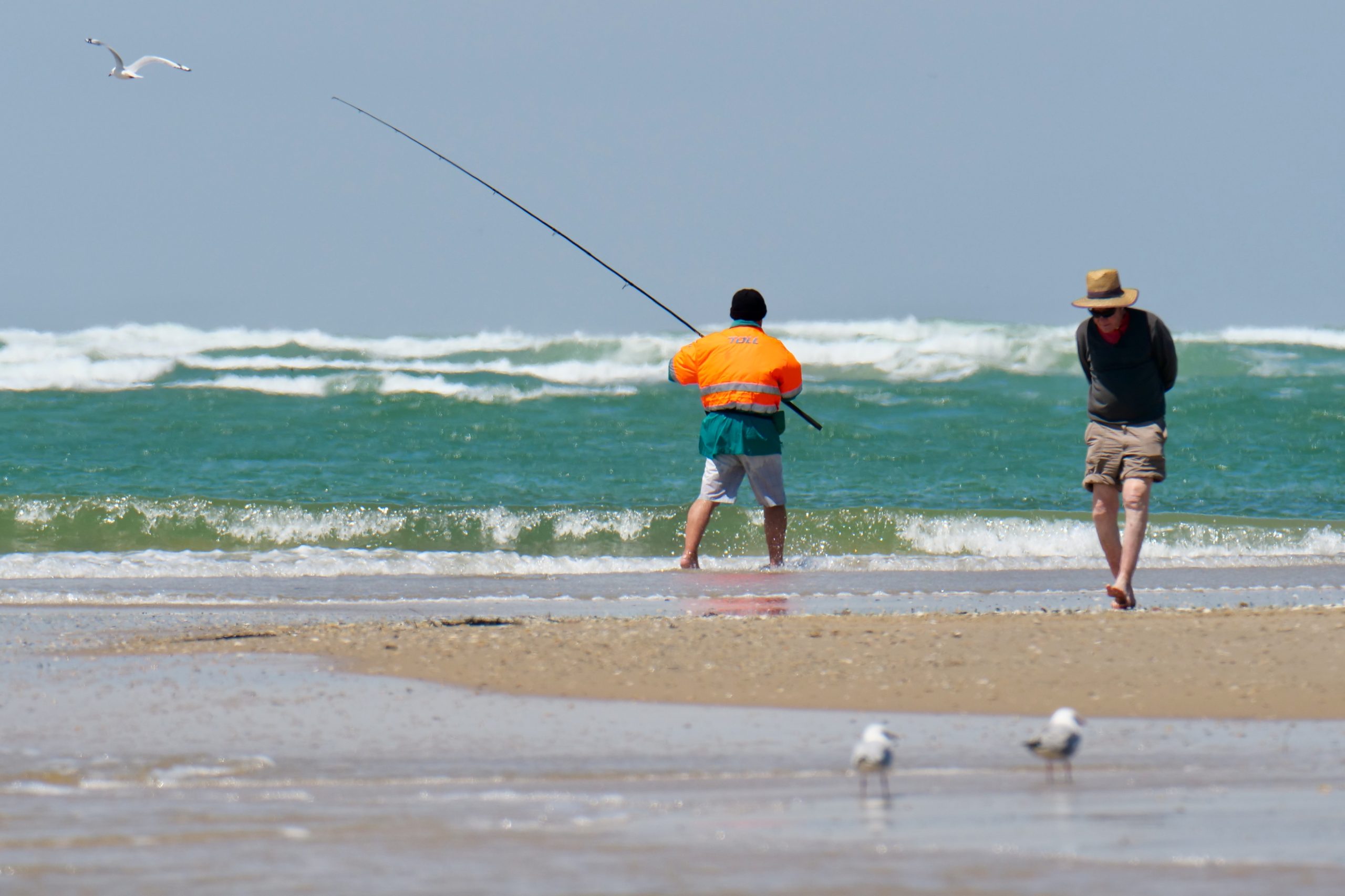The featured image’s recreational fishers are at a location which is ever-shifting, but quite easy to reach.
The mouth of Australia’s longest river system is just a day trip away, if you live in Adelaide.
This is where the River Murray, the Coorong and the Southern Ocean meet…although the much-abused Murray-Darling system’s outflow is often so un-mighty that only dredging keeps its mouth open.
(photo is copyright Doug Spencer, taken 14 December 2019)
The Coorong is one of my favourite places…and canny fish buyers know that Coorong Mullet are a contender for “Australia’s “best value, sustainably caught, tasty, and healthy-eating species”.
I was raised not very far away from the Coorong’s southern part.
Today’s photo was taken on our most recent visit to its northern section.
Both film adaptations of Colin Thiele’s Storm Boy – and the original book, and a stage version – have likely done a power of good in various ways.
They made millions of otherwise-unaware Australians – and non-Australians too – “discover” this very special, now-fragile place.
They likely awakened many people to its significance to the descendants of the humans who were already there – for many thousands of years – before Europeans “discovered” Australia.
Today, the Coorong is sparsely populated by humans.
For many thousands of years, however, its human population density would have been among the highest of anywhere in Australia; its enormous middens dramatically confirm that fact.
I suspect that Storm Boy played a key role, generally, in sparking many Australians’ environmental awareness.
—-
Today’s fishing songs are utterly unlike each other, and are not from the Coorong.
Some believe that the first of them began as a Portuguese lullaby, but nobody appears to be sure of its origins.
Versions of Little Fish have been sung for at least a number of generations in English-speaking households in both northern and southern latitudes.
However, this young millennium, along came a singularly lovely new version, devised & delivered by an Australian fiddle-singer:
Click here to discover more about Jenny M.Thomas and her wonderful, wonderfully-named trio, Bush Gothic.
I heartily recommend attendance at Bush Gothic gigs, whenever they again become possible.
Meanwhile you could do yourself and them a favour by purchasing a Bush Gothic recording. (the recorded version of Little Fish predated Bush Gothic, as such, but can still be found, here)
Perhaps the greatest song about fishing, professionally, on wild and dangerous seas, was authored in 1959.
Ewan MacColl wrote Shoals of Herring for Singing the Fishing, the third in The BBC’s “Radio Ballad” series.
The song is based on the actual life of Sam Larner – a singing fisherman who sang for almost all of his life, but was nearly 80 when he first appeared “on air” and “on disc”.
Sam’s, the North Sea herring fishery’s, and the song’s story are all extraordinary; click here to discover them.
Umptidleen artists have recorded Shoals of Herring.
It has even had a key moment in a Coen Brothers film, and been “Irished”/mondegreened as “shoals of Erin”!
Shoals of Herring is now so embedded in our collective consciousness that many folks believe it is a “traditional” folk song.
Wikipedia is yet to “discover” the most uncanny recorded version.
The relevant, long-deleted 1978 LP, Songs of Ewan MacColl”, was a collaboration between a Scotsman and two Englishmen – Dick Gaughan, Tony Capstick and Dave Burland.
Here, each first steps forward in the order just listed.
